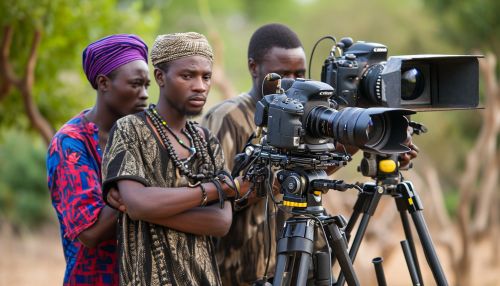African cinema
Origins of African Cinema
African cinema, as a form of art and communication, has its roots in the rich oral tradition of storytelling that is prevalent across the continent. This tradition, which includes folk tales, myths, and legends, has been a fundamental part of African culture for centuries. It is from this tradition that the first African films emerged, with filmmakers using the medium to tell stories that reflect the experiences and perspectives of their communities learn more.


Development of African Cinema
The development of African cinema has been influenced by a variety of factors, including the political, social, and economic conditions in different African countries. In the early 20th century, most African films were produced by European colonial powers, and they often portrayed Africa and Africans in a stereotypical and derogatory manner. However, with the advent of independence movements in the mid-20th century, African filmmakers began to challenge these negative portrayals and to create films that accurately represent African realities learn more.
Major Themes in African Cinema
African cinema covers a wide range of themes, reflecting the diversity and complexity of the African experience. Some of the major themes include colonialism and its aftermath, social and political struggles, gender issues, and the tension between tradition and modernity. African filmmakers often use their work to critique social injustices, to challenge prevailing norms and values, and to give voice to marginalized groups learn more.
Styles and Techniques in African Cinema
African cinema is characterized by a variety of styles and techniques, reflecting the creativity and innovation of African filmmakers. These include the use of oral storytelling techniques, symbolism, and allegory, as well as the incorporation of African music, dance, and visual art. African filmmakers also often use non-linear narrative structures, reflecting the cyclical nature of time in many African cultures learn more.


African Cinema and Global Cinema
African cinema has had a significant impact on global cinema, influencing filmmakers and audiences around the world. African films have been recognized at major international film festivals, and African filmmakers have been celebrated for their unique perspectives and innovative storytelling techniques. At the same time, African cinema has been influenced by global cinema, with African filmmakers incorporating elements of various international film styles into their work learn more.
Challenges and Opportunities in African Cinema
Despite its achievements, African cinema faces a number of challenges, including limited funding, lack of distribution networks, and the dominance of Hollywood and other foreign films in African markets. However, there are also many opportunities for growth and development, with the emergence of new technologies, the growing global interest in African films, and the increasing recognition of the importance of diverse voices in cinema learn more.
